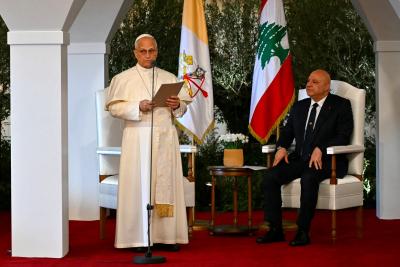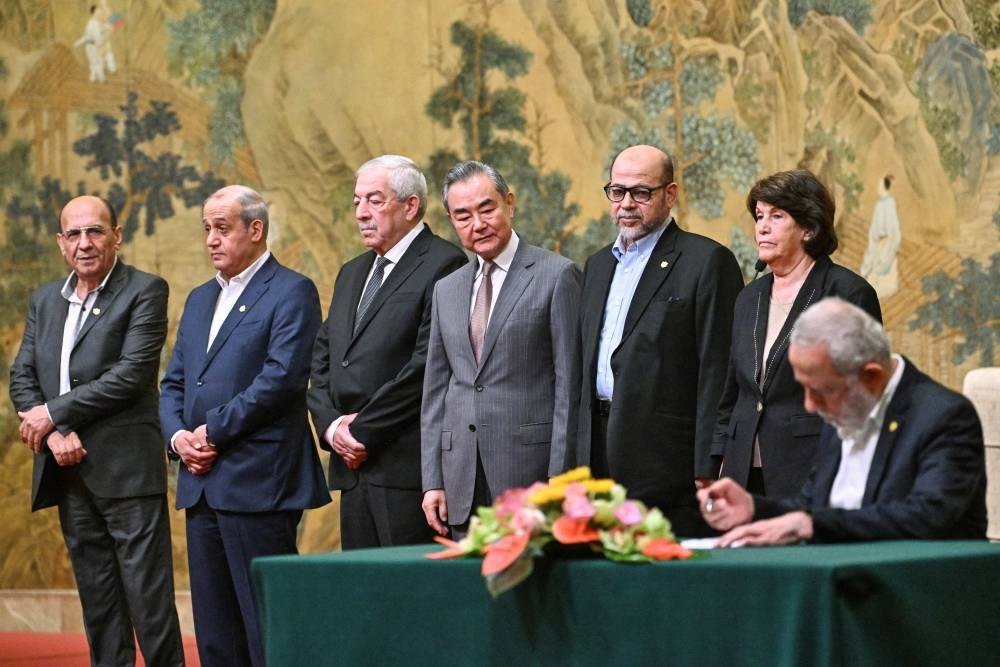China has made another geopolitical breakthrough in the Middle East after 14 Palestinian factions, including Fatah and Hamas, reached an agreement to form a "provisional national reconciliation government" to govern Gaza, following a dialogue organized in Beijing. This agreement comes as the bloody war waged by Israel against the territory has lasted for about ten months.
This Chinese accomplishment comes at a critical moment for the administration of U.S. President Joe Biden, who is politically paralyzed after he decided not to run for a second term. The Democrats are trying to rally around Vice President Kamala Harris as the presidential candidate, facing Republican Donald Trump.
China has taken advantage of American disarray and Biden's inability to convince Israeli Prime Minister Benjamin Netanyahu to agree to a ceasefire and propose a post-war plan for Gaza. This political gain adds to another Chinese diplomatic victory: in March 2022, Beijing managed to persuade Saudi Arabia and Iran to resume diplomatic relations, paving the way for a regional climate of calm after years of tension. This rapprochement also contributed to an informal truce in the Yemen war.
Despite American pressure on Palestinian President Mahmoud Abbas not to enter into a national unity government agreement with Hamas, the ongoing war in Gaza has exhausted the remaining political capital of the Palestinian Authority, weakened Fatah, and reduced its popularity to record levels.
The war has put the Palestinian Authority in an embarrassing position, especially as Israeli attacks in the West Bank intensify, while settlers ravage Palestinian villages under the eyes of Israeli soldiers.
The Israeli government refuses any role for the Palestinian Authority in Gaza after the war, despite Washington's attempts to convince Netanyahu to accept this idea. Netanyahu responded that he wanted neither a "Hamastan" nor a "Fatahstan" in Gaza after the war and that the Israeli army would not withdraw from the territory in the near future.
When the Israeli Knesset passed a law on July 18 rejecting the creation of a Palestinian state, it left the Palestinian Authority with no choice but to turn to reconciliation with Hamas and conclude an agreement on a national unity government.
While Netanyahu stalls on the ceasefire, plans for a permanent occupation of Gaza, and intensifies raids in the West Bank under mild American criticism, Israel approved the construction of 5,300 housing units for settlers in the West Bank in July and the creation of five new settlements. This was followed by the expropriation of 12.7 square kilometers of land in the West Bank, the largest confiscation in three decades, according to the anti-settlement organization "Peace Now."
The national unity government agreement was also concluded a few days after the advisory opinion of the International Court of Justice, stating that "the prolonged Israeli military presence in the Palestinian territories can no longer be considered a temporary occupation but constitutes an annexation undermining the Palestinians' right to self-determination," and called on Israel to cease its settlement activities and dismantle existing settlements.
Although this opinion is not binding, it exacerbates Israel's international isolation, intensified by the war in Gaza, prompting European countries to recognize the State of Palestine.
The Palestinian Authority, which has often criticized Hamas and held it partially responsible for the situation in Gaza, could no longer avoid taking a unifying stance transcending internal divisions, as the entire Palestinian people are targeted. It is uncertain whether Israel will not extend its large-scale war to the West Bank, reviving plans for population transfer to Jordan and the concept of an "alternative homeland," as desired by extremist ministers Itamar Ben Gvir and Bezalel Smotrich.
Mahmoud Abbas's frustration led him to accept Russian President Vladimir Putin's invitation to visit Moscow on August 13, also strengthening Russian policy in the Middle East after a retreat due to the war in Ukraine. Moscow had previously organized a dialogue between Fatah and Hamas officials, and the Beijing meeting complemented Russian efforts towards Palestinian reconciliation.
Please post your comments on:
[email protected]
 Politics
Politics













